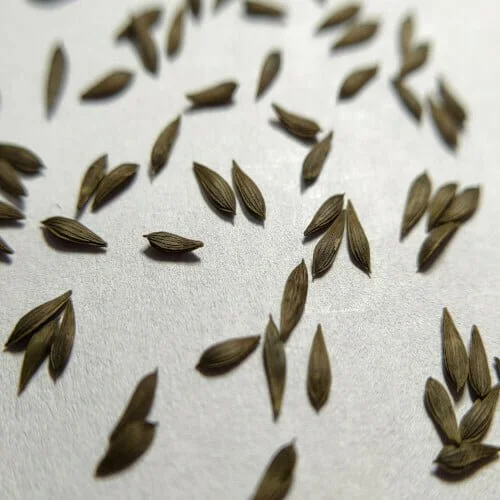Lettuce Seeds (10 seeds)
₹20.0
Lettuce is a popular leafy vegetable and can be eaten cooked or raw in salads. This hydrating vegetable is high in nutrients and low in calories. Try our Non-GMO Lettuce seeds. Also, check out our workshops for more details.
PRODUCT DESCRIPTION
Number of seeds in a packet – 10
PLANT DESCRIPTION
- Difficulty Level – medium
- Plant Height – 12 – 40 inches
- Color – green
- Type – outdoor, balcony, or indoor
- Feed – Vermicompost for nutrients every week, Seaweed once a month for greener leaves
- Watering – every day
- Sunlight – full sunlight or partial shade
- Germination Time – 1 week
- Harvesting Time – 6 – 8 weeks
- Suitable Temperature – 60°F – 65°F
- Season – winter and spring
HOW TO GROW LETTUCE FROM SEEDS
- Take a Growbag and fill it with Cocopeat.
- Sprinkle the seeds around the Growbag.
- Cover the seeds gently with Cocopeat and spray with water.
- Fill the hole with Cocopeat and spray with water.
- Water every day.
- Seeds will germinate within 7 days.
- Full sunlight is needed.
ALTERNATE METHOD
- Take a Medium size Pot and add a Potting Mix.
- If planting in the soil add Neem Cake Powder, Vermicompost, and Seaweed.
ALTERNATE NAME
Botanical name: Lactuca sativa
lettuce seed in hindi : salaad ke beej (सलाद के बीज)
lettuce seed in tamil : kirai vitaikaḷ (கீரை விதைகள்)
lettuce seed in telugu : palakura ginnjalu (పాలకూర గింజలు)
lettuce seed in kannada : letis bijagalu (ಲೆಟಿಸ್ ಬೀಜಗಳು)
lettuce seed in marathi: kosimbirisaṭhi vaparanyata yenara eka pala va tyace jhada biyane (कोशिंबिरीसाठी वापरण्यात येणारा एक पाला व त्याचे झाड बियाणे)
lettuce seed in malayalam: cheera vithukal (ചീര വിത്തുകൾ)
Other names: Garden lettuce..
You must be logged in to post a review.
Q & A
The sustainability of vegetable seeds refers to their ability to contribute to long-term environmental, social, and economic well-being. Here are a few aspects to consider regarding the sustainability of vegetable seeds:
Genetic Diversity: Maintaining genetic diversity is crucial for the sustainability of vegetable seeds. A diverse gene pool ensures resilience to pests, diseases, and changing environmental conditions. Traditional and heirloom seed varieties play a vital role in preserving genetic diversity.
Open Pollination: Open-pollinated seeds allow natural cross-pollination, which helps maintain genetic diversity. These seeds can be saved and replanted, ensuring their long-term availability and reducing the dependence on commercially produced hybrid or genetically modified seeds.
Seed Saving: Saving and sharing seeds from year to year promotes sustainability. It empowers individuals and communities to be self-reliant and preserves local seed varieties that are well-adapted to specific climates and conditions.
Organic Production: Seeds produced using organic methods, free from synthetic fertilizers, pesticides, and genetically modified organisms (GMOs), contribute to the sustainability of vegetable farming. Organic practices promote soil health, biodiversity, and reduce environmental impacts.
Local Adaptation: Choosing seeds that are well-suited to the local environment and climate enhances sustainability. Locally adapted varieties require fewer inputs, such as water and fertilizer, and have a higher chance of success in the specific region.
Seed Banks and Preservation Efforts: Seed banks and conservation organizations play a crucial role in preserving and conserving vegetable seeds. They maintain seed collections and work to ensure the long-term availability of diverse seed varieties for future generations.
Seed Industry Practices: Some seed companies prioritize sustainable practices in their operations, such as reducing packaging waste, supporting organic agriculture, and investing in research and development of sustainable seed varieties. Supporting these companies can contribute to the overall sustainability of vegetable seeds.
It is important to note that the sustainability of vegetable seeds is interconnected with larger agricultural and environmental systems. To support sustainable seed practices, individuals, farmers, and policymakers can encourage seed-saving initiatives, promote biodiversity conservation, and support local seed systems.
General Inquiries
There are no inquiries yet.




Reviews
There are no reviews yet.